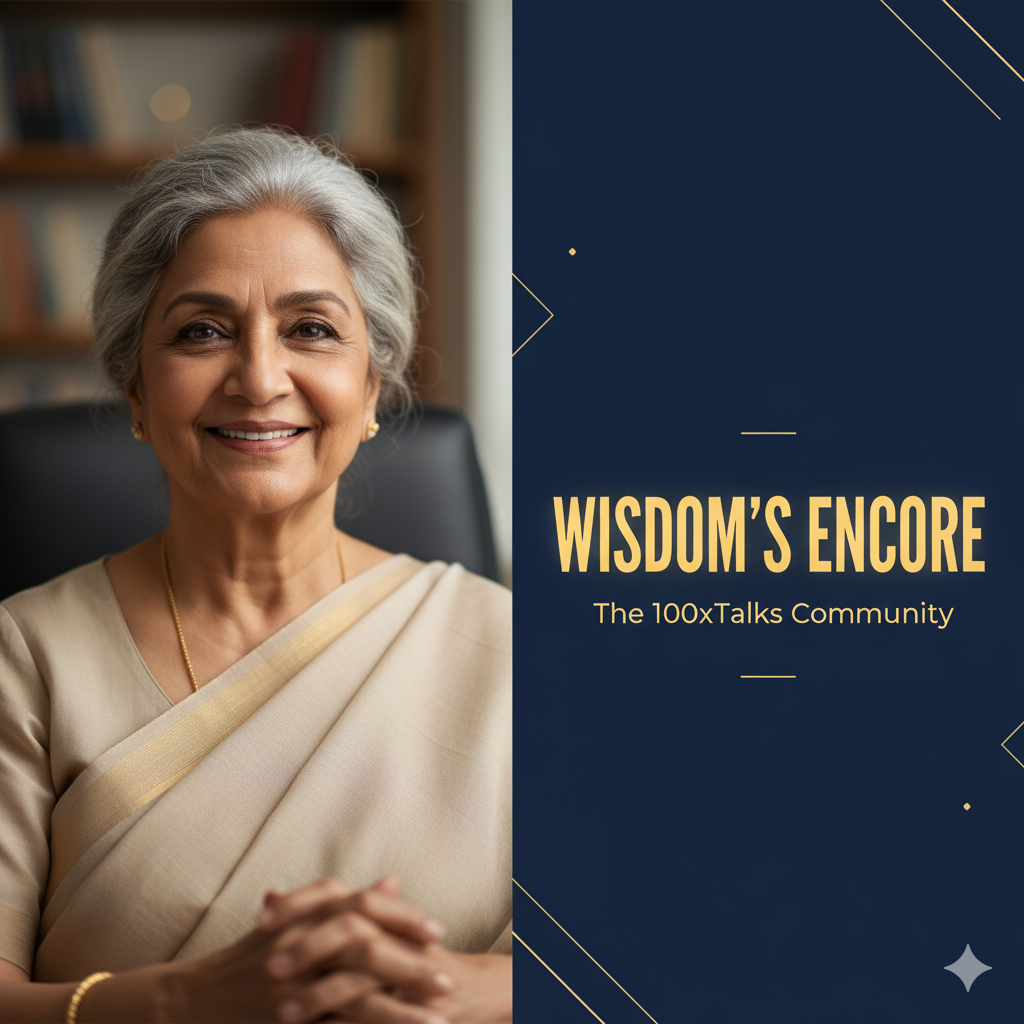Stop watching TV. Your 30 years of experience is priceless currency.
You’ve spent three decades mastering your craft. You’ve solved problems that would make younger professionals’ heads spin. You’ve navigated office politics, economic downturns, and technological revolutions. And now, as retirement approaches or begins, you’re watching daytime television while that invaluable knowledge slowly evaporates from the marketplace.
Here’s the uncomfortable truth: You’re sitting on a gold mine, and you’re treating it like a rocking chair.
The Million-Dollar Knowledge Gap
Every day, businesses across America are bleeding money because they lack something you possess in abundance: experience. Not just any experience—the kind that only comes from decades in the trenches, making mistakes, learning systems, understanding human nature, and developing an intuition that no MBA program can teach.
Consider this: A mid-sized company struggling with operational inefficiencies might burn through $50,000 to $100,000 in consulting fees, only to receive generic advice from a 32-year-old who’s never actually run a department. Meanwhile, you—someone who’s actually lived through multiple business cycles and solved similar problems—are debating whether to take up golf or gardening.
The consulting industry generates over $300 billion annually in the United States alone. A significant portion of that revenue flows to individuals who are selling precisely what you already own: specialized knowledge, pattern recognition, and hard-won wisdom.
Your Experience Isn’t Just Valuable—It’s Irreplaceable
Let’s break down what your 30 years of professional life has actually given you:
Deep Pattern Recognition: You can spot a problem forming before it becomes a crisis. You’ve seen this movie before—maybe a dozen times—and you know how it ends. This predictive capability is worth its weight in gold to companies trying to avoid expensive mistakes.
Institutional Memory: You remember when similar “innovative” ideas were tried in the 1990s and failed spectacularly. You understand the cyclical nature of business trends. You can save organizations years of wasted effort by helping them avoid reinventing the wheel—or worse, repeating historical failures.
Nuanced Problem-Solving: Your solutions aren’t theoretical. They’re battle-tested. You’ve learned that the “right” answer in a textbook often needs significant modification when human psychology, company culture, and real-world constraints enter the picture.
Professional Networks: Over 30 years, you’ve built relationships across industries, companies, and roles. These connections are a form of social capital that opens doors and facilitates solutions in ways that younger professionals simply cannot replicate.
Credibility: When you speak about your domain, people listen. Your gray hair isn’t a liability—it’s a credential that commands respect and makes your advice more actionable.
The Monetization Menu: How to Convert Knowledge into Cash
The beauty of experience-based income is its flexibility. You’re not choosing between retirement and a full-time job. You’re creating a portfolio of opportunities that fit your desired lifestyle.
Consulting: The Premium Path
Specialized consultants in fields like manufacturing, healthcare, finance, and technology routinely charge between $150 and $500 per hour. Those with highly specialized expertise can command even more.
The math is simple: Twenty billable hours per month at $200 per hour equals $48,000 annually. That’s a substantial supplement to your retirement income, achieved while working less than a week per month.
The key is positioning yourself correctly. You’re not looking for a job—you’re offering fractional expertise. Small and mid-sized businesses, in particular, need your knowledge but can’t afford a full-time executive with your background. You’re the perfect solution.
Advisory Boards: Recurring Revenue with Minimal Time Investment
Many companies need strategic guidance but don’t require constant hands-on involvement. Advisory board positions typically pay between $1,000 and $10,000 per month, depending on the company size and industry, for attending monthly meetings and being available for periodic questions.
Serve on three advisory boards, and you’re looking at $36,000 to $120,000 annually for roughly 15-20 hours of work per month. You provide strategic input during meetings, review materials beforehand, and make yourself available for the occasional phone call.
Training and Workshops: Teaching What You Know
Organizations constantly need to train their workforce, and they’re willing to pay premium rates for trainers who’ve actually done the work rather than just studied it.
Corporate training rates typically range from $1,500 to $5,000 per day. Develop three or four signature workshops based on your core competencies, and you can create a lucrative speaking and training calendar. Even one workshop per month generates $18,000 to $60,000 annually.
The content creation is front-loaded work, but once you’ve developed your materials, you can deliver them repeatedly with minimal additional effort.
Mentorship Programs: Packaging Your Wisdom
Both individuals and organizations pay for structured mentorship. Career professionals might pay $200-$500 per month for ongoing guidance from someone who’s successfully navigated their field. Companies pay significantly more for executive mentorship programs.
Ten mentees at $300 per month generates $36,000 annually. The time commitment? Usually just a few hours per week in one-on-one conversations or small group sessions.
Digital Products: Creating Passive Income Streams
Your knowledge can be packaged into books, online courses, templates, frameworks, and tools that generate income while you sleep.
An online course priced at $297 that sells just ten copies per month generates $35,640 annually with no additional time investment after creation. Write a book that establishes your expertise, and you create both a revenue stream and a marketing tool that attracts higher-paying opportunities.
Fractional Executive Roles: The New Frontier
The fractional executive model is exploding in popularity. Companies hire fractional CFOs, COOs, CMOs, and other C-suite positions for 10-20 hours per week at executive-level compensation.
A fractional executive role might pay $5,000 to $15,000 per month for part-time work. This isn’t consulting—it’s taking on a legitimate leadership role for multiple organizations simultaneously.
The Real Numbers: What’s Actually Possible
Let’s construct a realistic scenario for someone with 30 years of experience who decides to monetize their knowledge part-time:
- Two advisory board positions: $3,000/month combined = $36,000/year
- Consulting (10 hours/month at $200/hour): $2,000/month = $24,000/year
- Quarterly workshops (4 per year at $2,500 each): $10,000/year
- Online course (passive income): $1,500/month = $18,000/year
Total: $88,000 annually
This is achieved while working roughly 20-25 hours per month—less than a week of traditional full-time work. And this is a conservative estimate for someone just beginning to monetize their expertise.
For those willing to be more aggressive, six-figure income is entirely realistic. Some experienced professionals transitioning into knowledge-based businesses generate $250,000 to $500,000 annually while maintaining the flexibility and freedom that drew them to retirement in the first place.
The Biggest Obstacles (And How to Overcome Them)
“I Don’t Know How to Market Myself”
You don’t need to become a social media influencer. Your marketing strategy should leverage what you already have: professional connections.
Start by reaching out to former colleagues, industry contacts, and friends. Let them know you’re available for consulting or advisory work. People who’ve worked with you already trust your competence. They’re your warmest leads.
Join a few LinkedIn groups in your industry and contribute valuable insights to discussions. Write articles about common challenges in your field. Speak at industry conferences. These activities position you as an expert and attract opportunities organically.
“I Don’t Have the Energy I Used to”
That’s precisely the point. You’re not looking to work 60-hour weeks. You’re selectively applying your knowledge where it has maximum impact. Twenty hours per month of focused, high-value work is more financially rewarding than 160 hours of unfulfilling busywork.
Your business model should be designed around your desired lifestyle, not the other way around.
“The Market Has Changed Too Much”
Core principles remain constant even as surface details change. Decision-making frameworks, leadership principles, customer psychology, operational efficiency strategies—these fundamentals evolve slowly. Your understanding of these core concepts is absolutely relevant.
Moreover, your ability to contextualize current changes within historical patterns is especially valuable. Organizations drowning in the latest trends need someone who can separate signal from noise.
“I’m Not Technically Savvy Enough”
You don’t need to be. Many of the highest-value opportunities for experienced professionals exist precisely because of the human elements that technology can’t replicate: strategic thinking, relationship management, change leadership, and nuanced judgment.
That said, basic digital competence—email, video calls, simple presentation software—is sufficient. If you can navigate Netflix, you can handle the technology required for knowledge-based income.
The Setup: Getting Started in 90 Days
Month One: Clarification and Positioning
Define exactly what problems you solve and for whom. Don’t try to be everything to everyone. Your greatest value lies in specialized expertise, not generalist knowledge.
Create a simple one-page website that clearly articulates who you help and what results you deliver. Include your background, testimonials if available, and a clear call-to-action for potential clients to schedule a conversation.
Develop your “positioning statement”—a clear, concise explanation of the value you provide. This becomes the foundation of every conversation and marketing material.
Month Two: Outreach and Conversation
Contact 50 people in your network. Not with a sales pitch, but with genuine reconnection. Mention that you’re exploring advisory and consulting opportunities, and ask if they know anyone who might benefit from your expertise.
Schedule coffee meetings or phone calls. Many of these conversations won’t lead to immediate paid work, but they rebuild your professional presence and often lead to referrals.
Join relevant online communities and begin contributing valuable insights. Don’t promote yourself overtly—just demonstrate your expertise through helpful responses and thoughtful questions.
Month Three: Packaging and Pricing
Develop at least one signature offering—a consulting package, workshop, or advisory arrangement that you can propose when opportunities arise.
Set your rates at premium levels. You’re not competing on price—you’re competing on value. Underpricing signals inexperience, not wisdom.
Create simple templates for proposals and contracts. You don’t need expensive legal documents to start—basic agreements that clarify scope, timing, and payment terms are sufficient.
The Lifestyle Multiplier: Why This Matters Beyond Money
The financial dimension is compelling, but monetizing your experience delivers benefits that transcend your bank account:
Purpose and Identity: Retirement can create an identity void. Continuing to contribute professionally maintains a sense of purpose and social relevance without the constraints of traditional employment.
Mental Acuity: Engaging with complex problems, learning new contexts, and teaching others keeps your mind sharp. Research consistently shows that intellectual engagement is protective against cognitive decline.
Flexibility: Unlike traditional employment, knowledge work can be structured around your life. Want to spend three months traveling? Build your calendar accordingly. Need to reduce hours for health reasons? Scale back without losing your entire income stream.
Legacy: Sharing your knowledge ensures it isn’t lost. You’re not just earning money—you’re transferring decades of learning to the next generation of professionals.
Social Connection: Meaningful work provides ongoing social interaction and professional relationships that enrich retirement years.
The Choice That’s Actually Not a Choice
Here’s the reality: Your experience will be monetized regardless of whether you participate.
Someone will solve the problems you know how to solve. Someone will teach the lessons you’ve learned. Someone will provide the guidance you could offer. The question is whether that someone is you—capturing the financial value you created through decades of professional development—or whether it’s someone else, building their wealth on knowledge you’re allowing to dissipate.
You invested 30 years developing expertise that the marketplace desperately needs and will pay premium prices to access. The only question is whether you’re willing to treat that investment like the valuable asset it actually is.
The 30-Year Test
Imagine explaining your retirement strategy to your 35-year-old self—the person who was working 50-hour weeks, missing family dinners, managing difficult bosses, and handling workplace stress.
Would that younger version of you be satisfied knowing that all those years of hard work, all that accumulated knowledge, all those lessons learned from mistakes and successes alike, would be set aside while you watch television?
Or would they hope that you’d find a way to convert that investment into something meaningful—financially, intellectually, and personally?
Your 30 years of experience isn’t a relic of the past. It’s currency for the future. The marketplace is ready to pay. The only question is whether you’re ready to collect.
Stop watching TV. Your knowledge is needed, valuable, and waiting to be monetized. The million-dollar opportunity isn’t hiding in some complex investment strategy or speculative venture—it’s hiding in plain sight, in the experience you’ve already earned.
The next 30 years could be the most lucrative of your career, but only if you recognize the asset you’re sitting on and take action to deploy it.



